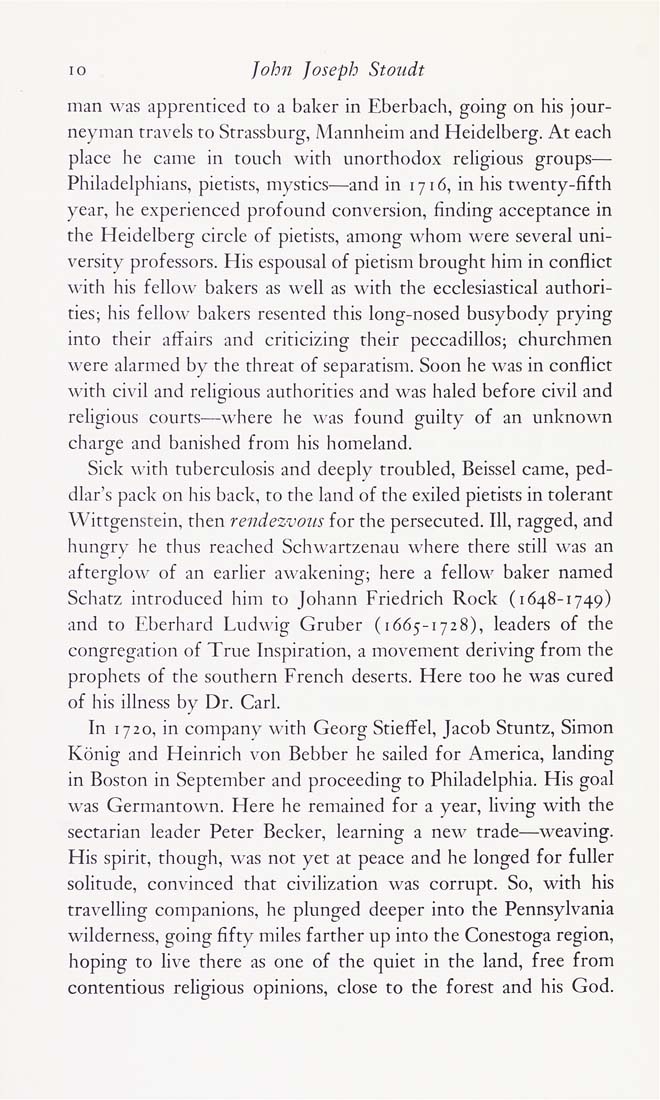Columbia Library columns (v.15(1965Nov-1966May))
(New York : Friends of the Columbia Libraries. )
|
||
|
|
|
|
| v.15,no.1(1965:Nov): Page 10 |

lo ]ohn Joseph Stoudt man was apprenticed to a baker in Eberbach, going on his jour¬ neyman travels to Strassburg, Mannheim and Heidelberg. At each place he came in touch with unorthodox religious groups— Philadelphians, pietists, mystics—and in 1716, in his twenty-fifth year, he experienced profound conversion, finding acceptance in the Heidelberg circle of pietists, among whom were several uni¬ versity professors. His espousal of pietism brought him in conflict with his fellow bakers as well as with the ecclesiastical authori¬ ties; his fellow bakers resented this long-nosed busybody prying into their affairs and criticizing their peccadillos; churchmen were alarmed by the threat of separatism. Soon he was in conflict with civil and religious authorities and was haled before civil and religious courts—where he was found guilty of an unknown charge and banished from his homeland. Sick with tuberculosis and deeply troubled, Beissel came, ped- dlar's pack on his back, to the land of the exiled pietists in tolerant Wittgenstein, then rendezvous for the persecuted. Ill, ragged, and hungry he thus reached Schwartzenau where there still was an afterglow of an earlier awakening; here a fellow baker named Schatz introduced him to Johann Friedrich Rock (1648-1749) and to Eberhard Ludwig Gruber (1665-1728), leaders of the congregation of True Inspiration, a movement deriving from the prophets of the southern French deserts. Here too he was cured of his illness by Dr. Carl. In 1720, in company with Georg Stieffel, Jacob Stuntz, Simon Konig and Heinrich von Bebber he sailed for America, landing in Boston in September and proceeding to Philadelphia. His goal was Germantown. Here he remained for a year, living with the sectarian leader Peter Becker, learning a new trade—weaving. His spirit, though, was not yet at peace and he longed for fuller solitude, convinced that civilization was corrupt. So, with his travelling companions, he plunged deeper into the Pennsylvania wilderness, going fifty miles farther up into the Conestoga region, hoping to five there as one of the quiet in the land, free from contentious religious opinions, close to the forest and his God. |
| v.15,no.1(1965:Nov): Page 10 |







